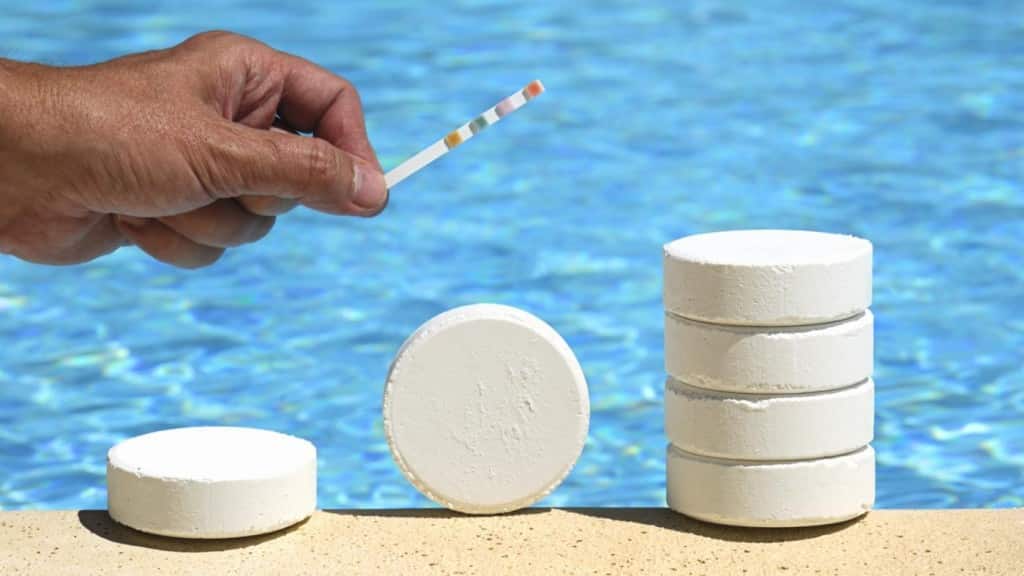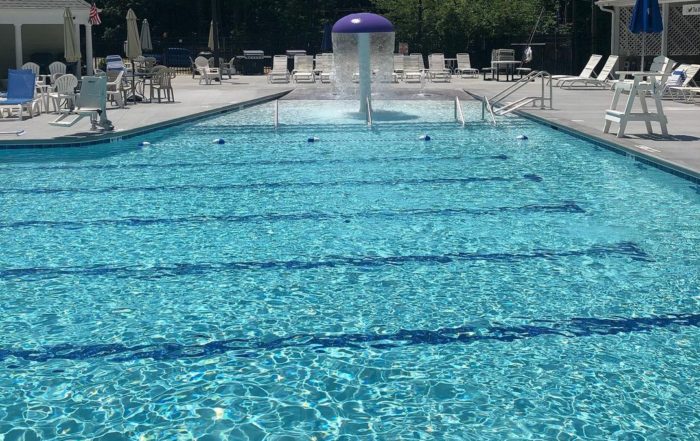Water Disinfection

Water Disinfection
Disinfection is accomplished when the transmission or infections between persons of from the water is kept to a minimum and algae and other organisms are controlled. Disinfection is the process of destroying microorganisms that might cause human disease.
Many factors affect the disinfection process in swimming pools and spas: the pH of the water, temperature, environmental wastes, and user contamination. As the level of wastes and contamination increases, the proper level of disinfection becomes harder to maintain.
Fungicide and Rodenticide Act (FIFRA) requires that registered chemicals have labels that instruct end users on the proper use, storage and disposal of the material. Product labels have specific directions for use for swimming pool and spa water treatment. They include the proper range of concentration, frequency of treatment, methods of application, treatment procedures for newly filled pools, and essential water quality conditions necessary for the effective use of the product. It is unlawful to use registered chemicals in a manner that does not comply with the label instructions. The operator should always consult and comply with any labeled instructions, as well as any other applicable federal, or local laws and regulations.
the term disinfectant is sometimes called sanitizer, while disinfection is called sanitization. Disinfectants eliminate nearly all pathogens. Sanitary water is free of almost all pathogens.
the most common disinfectants (chlorine and bromine) used in commercial pools and spas are also oxidizers. The disinfectants react with and kill or inactivate microorganisms and oxidize contaminants. These two properties help eliminate microorganisms and contaminants. Oxidation plays an important role in maintaining a sanitary condition. Besides the ability to kill pathogens and oxidize contaminants, a disinfectant must also maintain a concentration in the water for extended periods of time (a residual). The disinfectant residual inactivates of kills microorganisms and oxidize contaminants as they enter the water to protect users from pathogens brought into the water by people of form the environment. Disinfectants that either do not maintain a residual concentration or do not act quickly against pathogens can only be used with a disinfectant.
When choosing a disinfectant, there are many factors to consider:
Water temperature
Bathing loads
Indoor or outdoor
Type of facility: pool, spa, therapy, water park
Source water chemistry
Chemical storage and safety concerns
Supervision and maintenance concerns
Codes and regulations
Aqua Operators pool services a North Carolina pool company have a dedicated team that understands happy customers keeps the doors open! We keep our team up to date on training in the industry and make sure our team is certified on all of the equipment that’s installed. Having our own on-site pool repair and warranty services means less hassle for you. Everything is done in-house so you can have more peace of mind with your investment.

